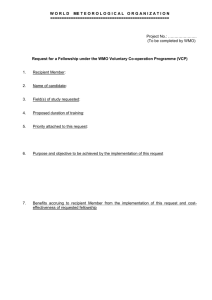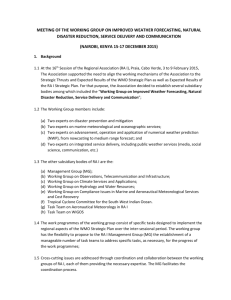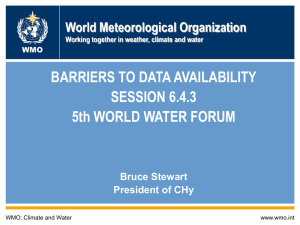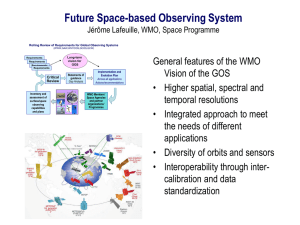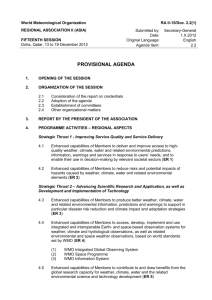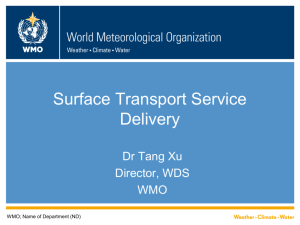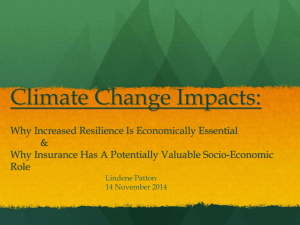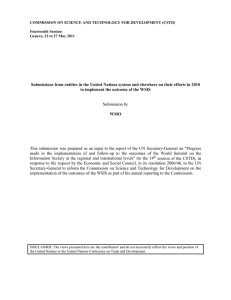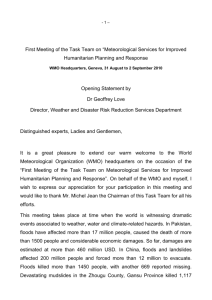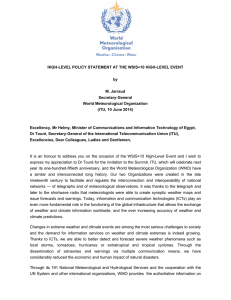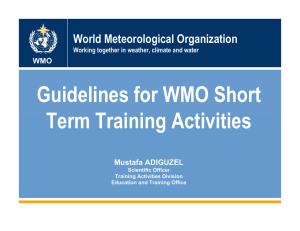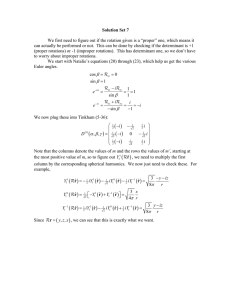Climate Change mitigation/adaptation and emergency telecommunication
advertisement
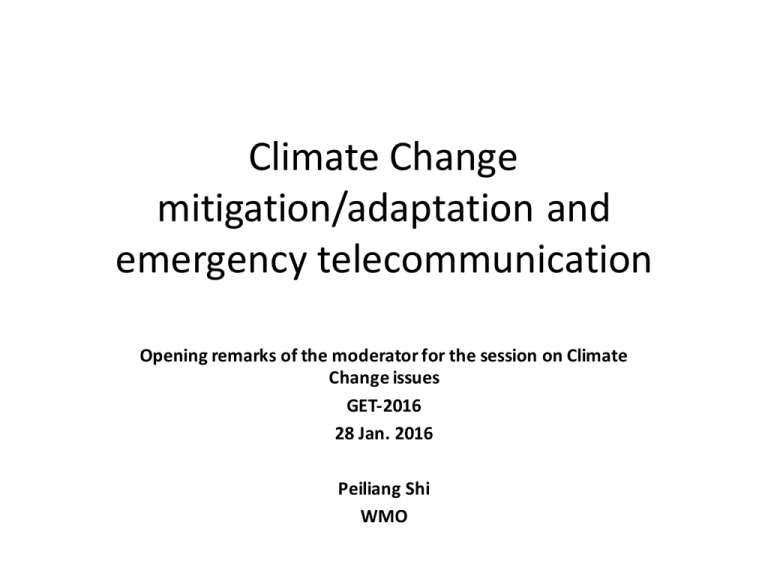
ClimateChange mitigation/adaptationand emergencytelecommunication OpeningremarksofthemoderatorforthesessiononClimate Changeissues GET-2016 28Jan.2016 Peiliang Shi WMO Three majorglobalagreements reachedin2015 • The SendaiFrameworkforDisasterRisk Reduction- Target7:Substantiallyincreasethe availabilityofandaccesstomulti-hazardearly warningsystemsanddisasterriskinformation assessmentsby2030 • UNSustainableDevelopmentGoals - Goal17: Takeurgentactiontocombatclimatechangeand itsimpacts • ParisAgreementonClimate Change- 2°C/1.5°C WMO’srole inimplementingthose agreements • DisasterRiskReductionisoneof7 priorityareas ofWMO • SupportMembercountriestocombatClimate Changebyprovidingsciencebasedinformation • ClimateChangemitigationreliesoneffective monitoringofemissionreductionglobal greenhousegases,esp.CO2 • ClimateChangeadaptationrequiresimproved earlywarningservices WMO’smajorinitiatives relatedto ClimateChange • WMOIntegratedGlobalObservationSystem • GlobalFrameworkforClimateServices • Multi-HazardEarlyWarningServices ICT, includingEmergencyTelecommunication, playsimportantrolesintheimplementationof thoseinitiatives – Collecting andexchangingobservationdata – Processingdatatoproduceweatherforecasts andclimatepredictions – Disseminatinginformationtousersbefore,during andafterextremeweatherandclimateevents "Hotter,drier,wetter.FacetheFuture” • Themeofthe2016WorldMeteorologicalDay– 23March • Thethemehasbeenchosentoillustratethe realityofclimatechange.Asaresultofheattrappinggreenhousegasesinouratmosphere, landandseasurfacetemperaturesarerising.The frequencyandintensityofextremeeventslike heatwaves andheavyrainfallisincreasing. Withouturgentactiontocutcarbondioxide emissions,thistrendwillaccelerate.
